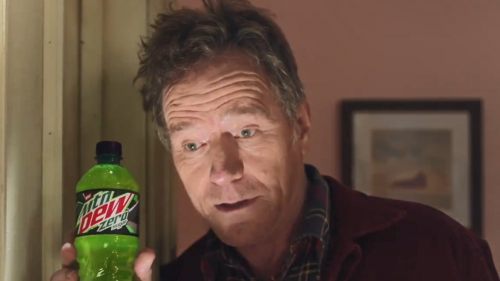THE UPSIDE Review: There Is No Upside
The Intouchables is a 2011 French film loosely based on the friendship between quadriplegic billionaire Philippe Pozzo di Borgo and his caretaker Abdel Sellou, an ex-convict who stumbled into Philippe’s life as a less-than-serious applicant for a job as Philippe’s caretaker but was given the position based solely on Philippe’s liking for Abdel’s attitude. The Intouchables is a tricky film to recommend, as it does function as something of an acting exercise for able-bodied actor François Cluzet to try his hand at portraying disability, but at the very least the film avoids the pitfalls of reducing the character to a caricature by placing the odd couple friendship between billionaire and working class straight-talker as the center focus. And yet, as with any modicum of international success in a European foreign film, The Intouchables has been remade in the U.S. under the inexplicable title The Upside. But while the skeleton of the superior Intouchables is visible within, The Upside takes any sense of subtlety from the original and blunts it into the thinnest, broadest shape for minimal positive impact.
Moving the setting to New York and renaming our leads Phillip (Bryan Cranston) and Dell (Kevin Hart), The Upside decides that what needs to set this version apart is extended personal drama in its two leads' personal lives. Cranston’s version of Phillip is introduced in a near-suicidal malaise, playing into the trope that the disabled must be miserable and not want to live anymore, something never hinted at in the original film. He is attended by his personal assistant and ostensible love interest, played by Nicole Kidman in a nothing role that is far beneath Kidman’s talents, and as the film rolls on it seems that Phillip’s sole character traits are that he doesn’t want to be pitied and needs to find his will to live again in his new normal. It’s a characterization that feeds into Cranston’s natural intensity but belies a sense of pity from the filmmakers that the character himself protests against.
Hart, meanwhile, invests Dell with… well, he’s basically just playing himself, as he always does. In theory, this is a role meant to allow Hart to flex his dramatic muscles, but those appear to be practically nonexistent as Hart riffs his way through nearly every scene in his usual brash, overbearing, often uncomfortably sexual way. This version of the story gives Dell a son whose love he needs to redeem by learning a sense of responsibility, and this works to some extent as a way to pad out Hart’s flimsy character work, but it also robs the character of a sense of personal growth that isn’t dependent on others needing him, whether it’s Phillip or his family.
Where The Upside really falls apart, though, is in how it handles its comedy. The Intouchables smartly veered away from physical comedy, because when one of your characters is unable to move below the neck, that character really has no choice but to be an unwilling prop to whatever gag you stage. The Upside, on the other hand, takes every opportunity to dehumanize Phillip’s body for cheap laughs, making jokes about catheters and bodily functions as Hart overacts and Cranston carries the beats as the nonplussed straight man, even as its the charater's own unfeeling body that is the object of humor. This insensitivity not only carries over into an extended gay panic joke that I swear must be a rider requirement in Hart’s contract at this point, but also into the dramatic scenes, in which Phillip’s lack of personal agency is something to be remedied through screaming matches and narcissistic appeals to privilege.
The Upside reads a lot like a group of white, able-bodied filmmakers watched The Intouchables, only to walk away from the experience ignoring what unified its leads and instead chose to focus on their caricatured perception of what made them different. The film sells itself as the tale of an unlikely friendship but is instead focused on presenting half-baked theses on race, economic inequality, and disability in as a series of sketches where the leads are the punchlines persistently laughing at themselves. It should surprise no one that this film was purchased in the fallout of The Weinstein Company’s collapse, as it is right in line with most of the tedious tripe the Weinsteins produced for the sole purpose of collecting awards season trophies, with varying degrees of success but almost always with an inescapable cynicism. Well, this time there is no upside to that schmaltzy faux feel-goodery, only transparently exploitative pablum.


_500_281_81_s_c1.jpg)
